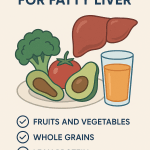This article is for informational purposes only and is not a substitute for professional medical advice. Always consult with a healthcare provider for personal health concerns.
Understanding the Connection Between Sleep and Diabetes
When managing diabetes, many people focus on diet and exercise, but did you know that sleep quality plays a crucial role too? Quality sleep is not just about feeling rested; it significantly impacts blood sugar levels and insulin sensitivity.
The Science Behind Sleep and Blood Sugar
Research has shown that inadequate sleep can lead to insulin resistance, making it harder to control blood sugar. According to the National Institutes of Health, just one night of poor sleep can result in increased insulin levels, which may lead to higher glucose levels the next day.
How Sleep Affects Insulin Sensitivity
Studies indicate that sleep deprivation decreases insulin sensitivity, meaning that your body struggles to use insulin effectively. This can lead to higher blood sugar levels, a significant concern for those with diabetes.
Quality vs. Quantity of Sleep
While getting enough sleep is important, the quality of that sleep matters too. Disrupted sleep patterns can lead to less restorative sleep, impacting your overall health and diabetes management.
Practical Tips for Better Sleep
Improving sleep quality doesn’t have to be complicated. Here are some strategies you might find helpful:
- Establish a consistent sleep schedule.
- Create a relaxing bedtime routine.
- Limit screen time before bed.
- Make your sleep environment comfortable.
- Avoid caffeine and heavy meals close to bedtime.
Conclusion
Incorporating good sleep hygiene into your daily routine could enhance your diabetes management. Have you considered how your sleep might be affecting your health? It’s worth exploring!
Key Takeaways
- Sleep quality significantly impacts blood sugar control.
- Poor sleep can lead to insulin resistance.
- Quality sleep is just as important as the quantity of sleep.
- Establishing a sleep routine can improve overall health.
- Simple changes can lead to better sleep hygiene.
References
- National Institutes of Health. (2013). Sleep and Diabetes. Retrieved from https://www.ncbi.nlm.nih.gov/pmc/articles/PMC3738720/
- World Health Organization (WHO). (2021). Sleep and health. Retrieved from https://www.who.int/news-room/fact-sheets/detail/sleep
- Centers for Disease Control and Prevention (CDC). (2022). Diabetes and Sleep. Retrieved from https://www.cdc.gov/diabetes/managing/sleep.html
- NHS. (2021). The importance of sleep for diabetes management. Retrieved from https://www.nhs.uk/live-well/sleep-and-tiredness/importance-of-sleep/
- UpToDate. (2023). Sleep and Diabetes. Retrieved from https://www.uptodate.com/contents/sleep-and-diabetes







Post a comment